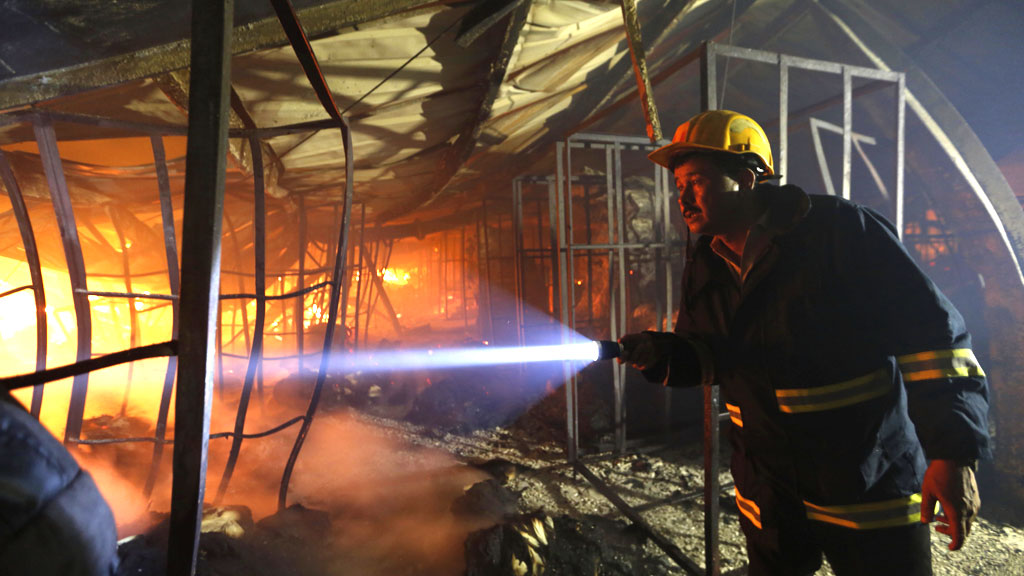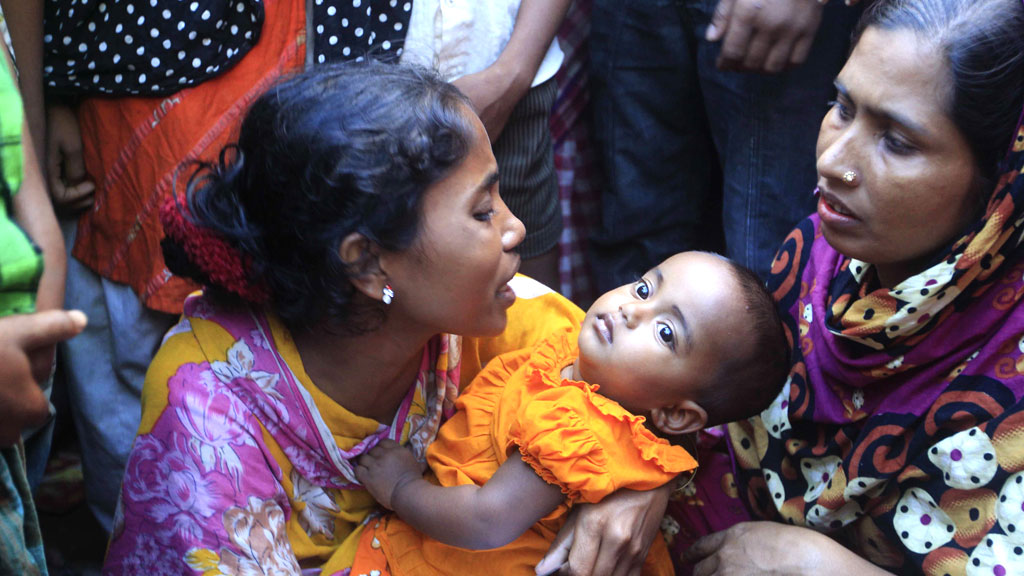H&M and Next linked to Bangladesh factory fire
Suppliers to leading British retailers used fabric produced by the Aswad Composite Mills factory in Gazipur that caught fire, killing at least nine people.

The cause of the fatal accident at the Aswad garment factory in Gazipur outside Dhaka was not yet clear, but the government is investigating.
It emerged that several leading retailers were linked to the factory via their Bangladeshi suppliers, including H&M, Next and Carrefour.
Footage filmed at the site of the fire appeared to show documents with the names of other retailers printed, including George at Asda and Morrisons.
Primark released a statement saying that it had cancelled a contract with the company in March over “safety concerns”.
The local firefighting chief said nine employees including three company managers died in the blaze that started in the knitting section of Aswad Composite Mills factory, part of the Paul Mall Group. Around 50 employees were also injured.
Next said that one of its suppliers, Marina Garments, sourced fabric from the Aswad mill, and as a third-party supplier, had not been inspected by the company. H&M said: “Aswad Knit Composite supplied many different garment factories including our approved supplier factory Aswad Composite Mills Ltd with fabrics and yarn.”
In a short statement, Asda said it will “take appropriate action” once more information about the incident is available.
This latest fire reflects the sad and shocking truth that not enough is being done – Guy Ryder, ILO
The blaze comes six months after a factory building collapse that killed 1,100 people at the Rana Plaza complex, which exposed the harsh and often unsafe conditions within the world’s third-biggest clothing industry. The factory complex supplied clothes to Primark, among other retailers.
It also follows a fire at the Tazreen Fashions factory outside Dhaka, in which 111 people died last November.
An official said that it took firefighters 10 hours to get the Gazipur fire under control early on Wednesday morning. An estimated 170 workers were reportedly inside the factory when the fire started and most were able to escape. The fire spread to two buildings that housed garment factories belonging to the Palmal Group of Industries, another fire official said.

Photo: A woman mourns with her child after her relative is reported missing following the fire
Safety accord
Bangladesh earns around $20bn a year from exporting clothes made in its factories, mainly to the US and Europe, and the sector employs about 4m people, mostly women.
But the Rana Plaza in particular exposed the industry as under-regulated, with employees working in often perilous conditions. An engineering survey carried out after the tragedy showed that many factories had added floors that the building foundations couldn’t support and were located in converted residential buildings not designed to withstand use of heavy equipment. Some inspections led to the immediate closure of the most unsafe factories.
A legally binding accord on fire and building safety in Bangladesh was signed by 90 retailers on 3 October, ensuring that 1,600 factories and more than 2m workers were subject to higher safety standards.
The international labour organisation (ILO) said that the fatal fire was another demonstration that more needed to be done. “This latest fire to affect the ready-made garment (RMG) sector in Bangladesh reflects the sad and shocking truth that not enough is being done to address the safety and health of garment factory workers,” said the ILO Director General Guy Ryder. “Despite the staggering loss of life over the past years, workers are still dying for reasons that could well be avoided if decent working conditions were in place.
Last month, thousands of garment factory workers staged violent protests, aimed at doubling their monthly pay to $104. About 400 of the country’s 5,000 garment factories were forced to close.
Video: Watch Jonathan Rugman’s exclusive report from inside a Bangladesh sweatshop, where one factory boss said that western brands are to blame for haggling over every last penny.